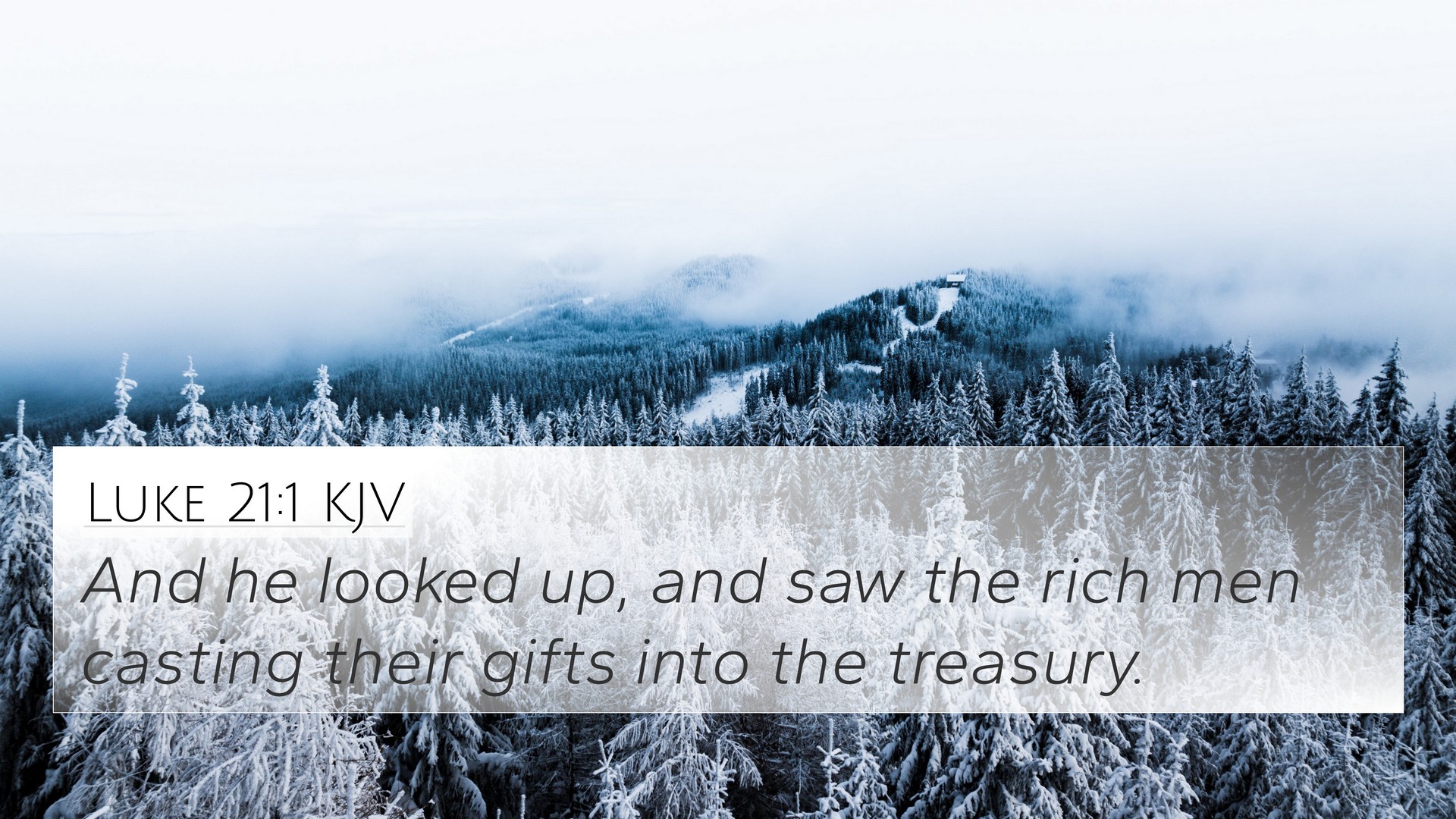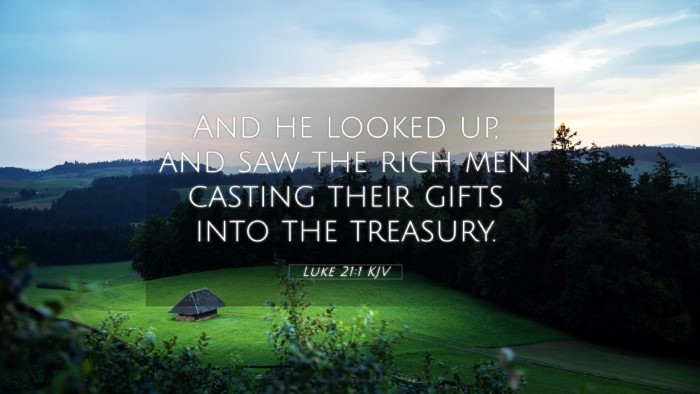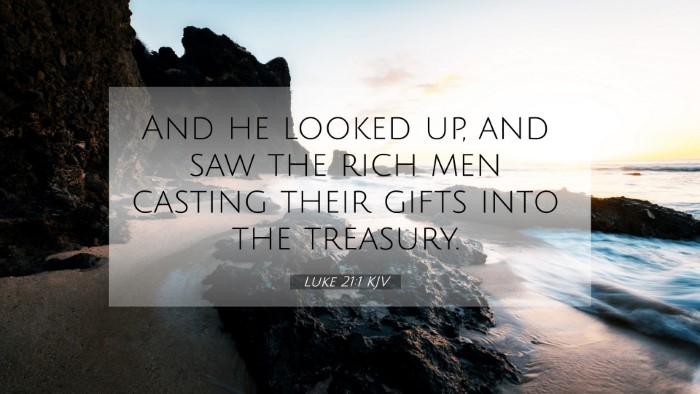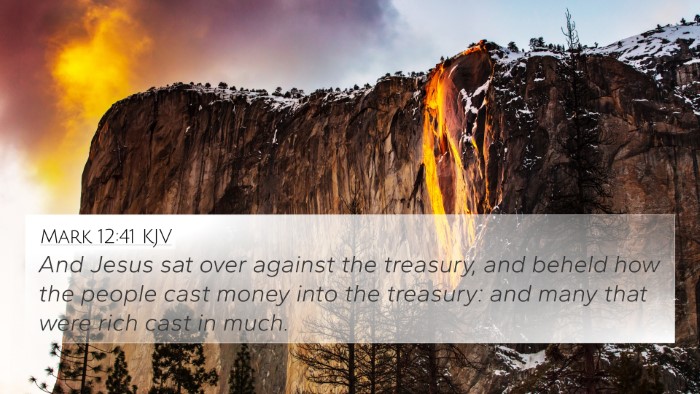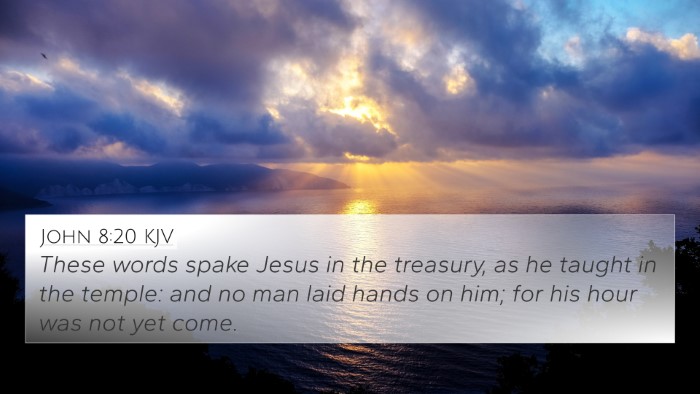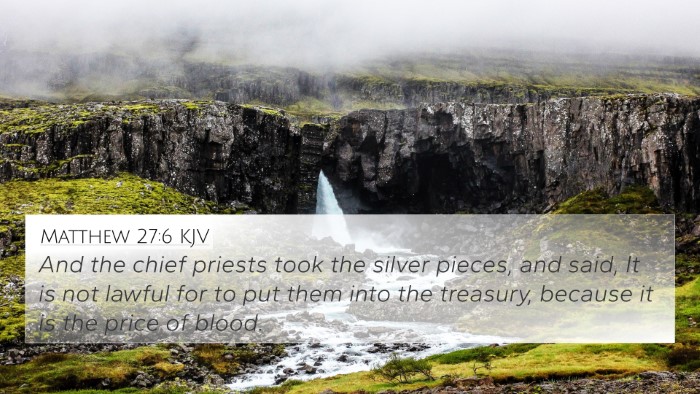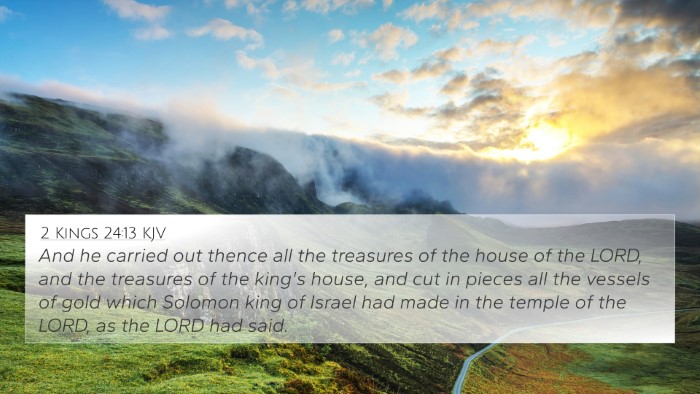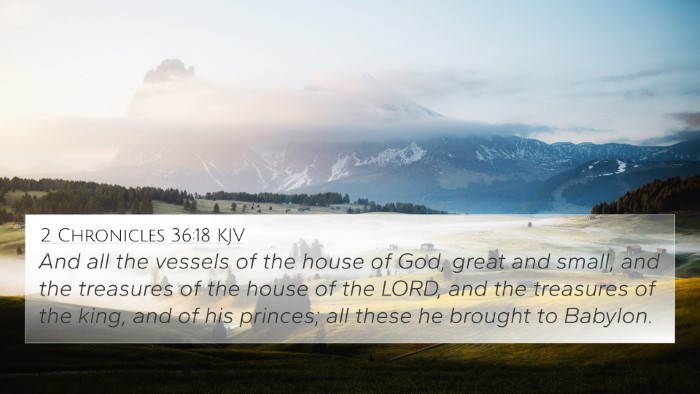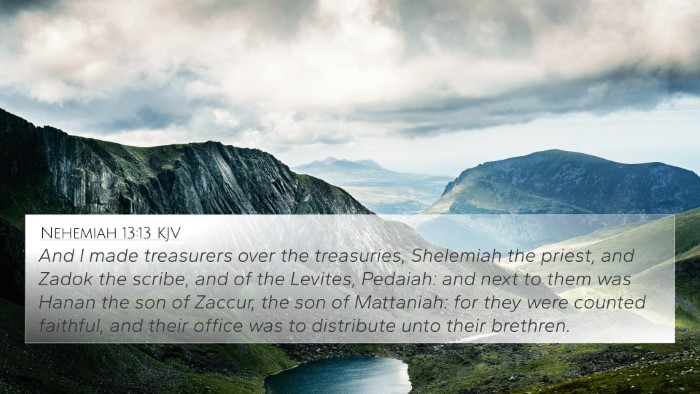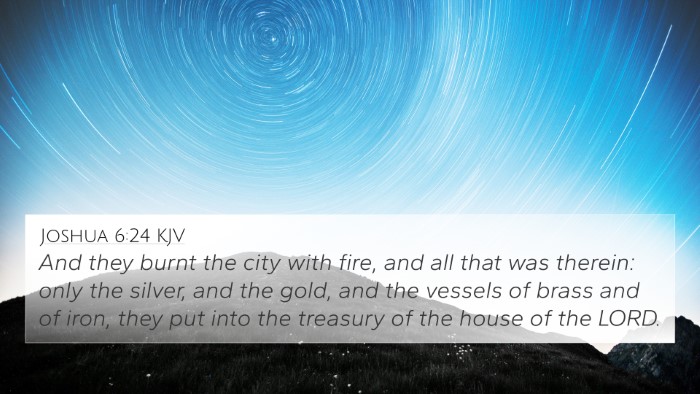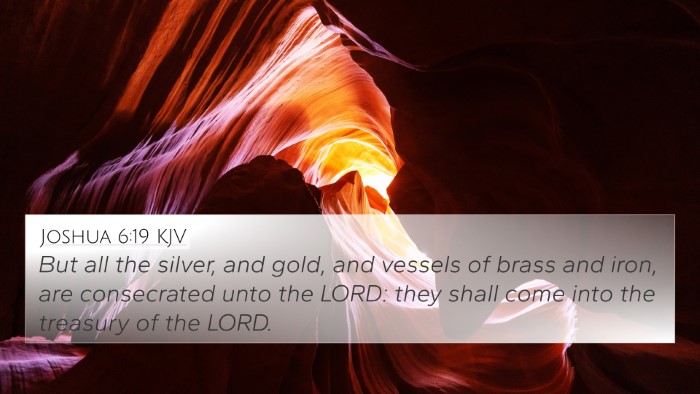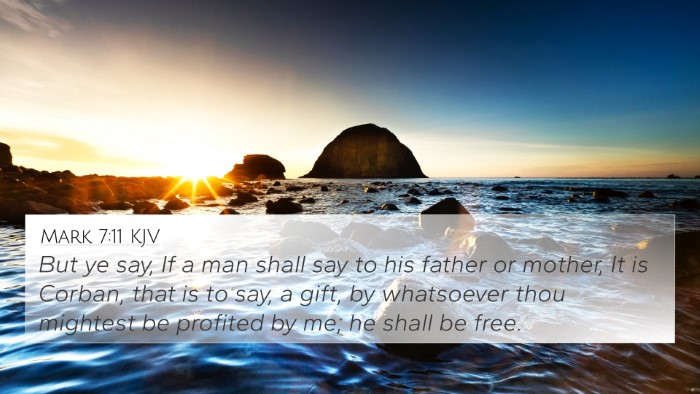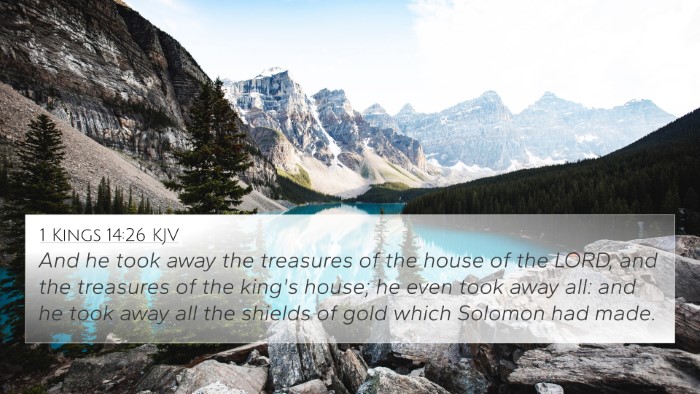Understanding Luke 21:1
Luke 21:1 states, "And He looked up and saw the rich putting their gifts into the treasury."
This verse captures a moment where Jesus observes the actions of those contributing to the temple treasury. The implications of this observation are profound, offering insights into giving, true devotion, and the heart's intention. The following commentary synthesis explores these themes in greater detail, providing readers with a comprehensive understanding of this verse.
Insights from Commentaries
Matthew Henry
Matthew Henry emphasizes the importance of the motives behind giving rather than the amount. He points out that Jesus was not impressed by the wealth of the rich, but rather by the spirit in which they gave. This establishes a key biblical principle: God values the heart’s intent over the outward display of wealth.
Albert Barnes
Albert Barnes highlights that observing the rich making their donations signifies a broader lesson on the nature of true generosity. He reminds readers that it is not the quantity of the offering that matters, but the heart from which the offering comes. This is consistent with biblical teachings regarding stewardship, responsibility, and the blessings associated with sacrificial giving.
Adam Clarke
Adam Clarke notes that Jesus, in His omniscience, perceives all things, including the intentions of the heart. Clarke mentions that the act of giving is examined not by human standards but by divine insight. This perspective encourages believers to reflect on their giving practices and intentions, ensuring they align with Christian teachings on generosity and service to others.
Key Themes in Luke 21:1
- Heart of Giving: The importance of the intention behind financial contributions.
- Divine Omniscience: Jesus' ability to see both actions and motivations.
- Value of Sacrifice: True generosity is often measured by sacrifice rather than surplus.
Bible Verse Cross-References
To deepen your understanding of Luke 21:1, consider the following related verses:
- Mark 12:41-44: The parallel account of the widow's offering underlines the same principle of sacrificial giving.
- 2 Corinthians 9:7: "Each one must give as he has decided in his heart, not reluctantly or under compulsion, for God loves a cheerful giver."
- Matthew 6:21: "For where your treasure is, there your heart will be also," which emphasizes the connection between giving and one's spiritual investment.
- Luke 18:22-24: The story of the rich young ruler shows the challenge of wealth regarding devotion to God.
- James 2:5: "Listen, my beloved brothers, has not God chosen those who are poor in the world to be rich in faith?" highlighting God's valuation of faith over worldly status.
- Proverbs 21:26: "All day long he craves and craves, but the righteous gives and does not hold back," illustrating the contrast between greedy and generous behavior.
- Romans 12:1: "Present your bodies as a living sacrifice," which correlates the act of giving to the greater theme of sacrifice in Christian life.
Thematic Bible Verse Connections
This account in Luke provides rich opportunities for thematic connections across scripture. Notably, it engages themes such as:
- Generosity: Explored in verses like 2 Corinthians 9:6-8 and Matthew 10:8.
- Materialism vs. Spirituality: Seen in passages like 1 Timothy 6:10 and Matthew 19:24.
- The Role of the Poor in God's Kingdom: Addressed in Luke 6:20-21 and Matthew 25:34-40.
Comparative Bible Verse Analysis
An analysis of similar verses enhances understanding and reveals the interconnected nature of biblical teachings. For example, contrasting the wealthy contributions noted in Luke 21:1 with the widow's two mites in Mark 12 showcases the disparity between outward appearances and true worth in God’s eyes.
Tools for Bible Cross-Referencing
For those interested in exploring the connections between Bible verses more deeply, several tools can facilitate this study:
- Bible Concordance: A valuable resource for finding terms and related verses.
- Bible Cross-Reference Guide: Guides that simplify the process of discovering related passages.
- Cross-Reference Bible Study: Methods for systematically exploring themes across scriptures.
- Bible Reference Resources: Websites and textbooks designed specifically to assist in cross-referencing.
- Bible Chain References: Follow a sequence of related verses to deepen thematic understanding.
User Intent Keywords
As you explore Luke 21:1, you might be seeking answers to questions like:
- What verses are related to Luke 21:1?
- Find cross-references for this specific verse.
- Similarities between Luke 21:1 and other Bible verses on giving.
- Bible verses that support the principle of sacrificial giving.
Conclusion
Luke 21:1 prompts readers to consider not just the act of giving, but the heart from which it flows. By comparing cross-referenced scriptures, believers can develop a fuller understanding of what Jesus teaches about wealth, generosity, and true worship. The combined insights from public domain commentaries highlight the timeless nature of these lessons, encouraging us to prioritize our spiritual values over material wealth.
